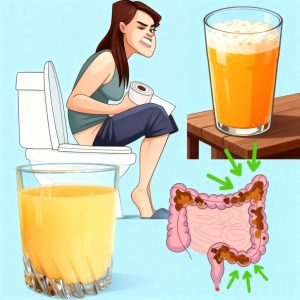Cancer doesn’t develop from one single cause. Instead, it can arise from a combination of genetics, environment, lifestyle, and long-term exposure to certain chemicals. While no product alone *guarantees* cancer, research has identified **several everyday items and habits** that can **increase risk over time** — especially with prolonged or repeated exposure.
Understanding these risks doesn’t mean you need to panic or throw everything away.
Instead, it means learning where to make **small, meaningful changes** that protect your health.
—
### **1. Talcum Powder (Talc) Products**
For decades, talc has been used in:
* Baby powder
* Body powders
* Cosmetic powders
**Concern:**
Talc can sometimes be contaminated with **asbestos**, a known carcinogen. Some lawsuits have linked long-term talc use to ovarian cancer and mesothelioma.
**Safer alternative:**
Look for products labeled **talc-free**, often made with cornstarch.
—
### **2. Certain Cleaning Products**
Many conventional cleaners contain:
* Formaldehyde
* Benzene
* Ammonia
* Volatile Organic Compounds (VOCs)
**Concern:**
Long-term exposure to high levels of VOCs has been linked to lung irritation and increased risk of cancer.
**Safer alternative:**
Choose **fragrance-free**, plant-based, or certified non-toxic cleaners.
—
### **3. Processed Meats**
Products like:
* Bacon
* Sausage
* Hot dogs
* Deli meats
**Concern:**
The World Health Organization classifies processed meats as **Group 1 carcinogens**, meaning there is strong evidence they increase colorectal cancer risk with frequent consumption.
**Safer alternative:**
Lean meats, poultry, beans, or fish — especially in moderation.
—
### **4. Long-Term Sun Exposure Without Protection**
UV exposure is the **#1 preventable cause of skin cancer**.
**Concern:**
Even short, repeated unprotected sun exposure increases melanoma risk.
**Protection:**
Use sunscreen (SPF 30+), hats, and shade — especially midday.
—
### **5. Hair Straightening Products with Formaldehyde**
Certain keratin hair treatments release **formaldehyde gas** when heated.
**Concern:**
Formaldehyde is a known carcinogen, especially when inhaled frequently.
**Safer alternative:**
Formaldehyde-free smoothing products or heat-free styling.
—
### **6. Plastics Heated in the Microwave**
Some plastics release **phthalates** and **BPA**, which may disrupt hormones when heated.
**Safer alternative:**
Heat food in glass or ceramic instead of plastic containers.
—
## **The Key to Reducing Risk**
You don’t need to eliminate everything.
The most effective approach is:
* **Awareness** — know what’s in your products.
* **Moderation** — reduce repeated or long-term exposure.
* **Substitution** — choose safer alternatives when possible.
Even small changes can lower cumulative risk over time.
—
## **When in Doubt, Look for These Labels:**
| Label | Meaning |
| ————————————– | —————————— |
| **Talc-Free** | No talc or asbestos risk. |
| **Fragrance-Free** | Avoids hidden chemical blends. |
| **Paraben-Free / Phthalate-Free** | Less hormone disruption. |
| **BPA-Free** | Safer for food storage. |
| **EWG Verified / MADE SAFE Certified** | Evaluated for health safety. |
—
### **Final Thought**
The goal isn’t to live in fear — it’s to live with **knowledge**.
Our everyday choices add up. When we understand the risks, we can protect ourselves and the people we love.
Living healthier doesn’t require perfection — just **awareness and small steps forward**.





